Dixie
Brief Synopsis
Cast & Crew
A. Edward Sutherland
Bing Crosby
Dorothy Lamour
Marjorie Reynolds
Billy De Wolfe
Lynne Overman
Film Details
Technical Specs

Synopsis
In the mid-1800s in Ohio, Daniel Decatur Emmett, who works at a feed store but yearns to be a performer, is romancing his fiancée, Jean Mason, when they hear the fire alarm ringing. They discover that Jean's house has burned down because of Dan's careless placement of his corncob pipe. Jean's father refuses to allow Dan to marry Jean unless he earns $1,000 within the next six months. To this end, Dan takes a ferry headed for New Orleans, and during the ride he meets Mr. Bones, an accordion-playing opportunist. Bones cheats Dan of his $500 inheritance in a rigged card game and then disappears. Not to be outsmarted, Dan places an advertisement in a New Orleans newspaper for an accordion player, and when Bones responds to the ad, Dan attempts to force him into returning his money. The money has already been spent, however, so Bones promises to make Dan a partner in his next show. Bones takes Dan to a boardinghouse run by Mr. Cook, who is sympathetic to actors, and his daughter Millie, who resents her father's leniency. Cook gets Bones a paying audition at the Maxwell Theatre, and Millie insists that Bones's friends and fellow boarders, Dan, Whitlock and Pelham, perform with him so that they can all pay their rent. Unfortunately, both Dan and Bones got black eyes during an altercation at a restaurant where they were unable to pay their bill. Millie suggests that they paint their faces to cover up their black eyes and go as black men. The audition is a rousing success, and Millie and Dan fall in love. Two weeks later, Bones sells the Maxwell Theatre his idea for a new show featuring twenty-four performers. Dan writes all the music for the minstrel show, but his conscience troubles him because of his engagement to Jean, and he snubs Millie. Bones takes advantage of Millie's situation and proposes to her, and she accepts. On opening night, the theater burns down because Dan is again careless with his pipe, and they thereby lose their jobs. Dan recognizes that Millie is his true love and reunites with her, but as he is out of work, he decides to return home and break off his engagement with Jean. When he discovers that Jean has been permanently paralyzed by a debilitating illness, however, he writes to Millie, breaking off their engagement, and marries Jean. The newlyweds move to New York with the hope that Dan can sell his music there. One day, Mr. Cook visits their apartment and tells Jean about Dan's previous engagement to Millie. When Dan returns that day having sold ten of his songs for only $100, Jean insists that they move to New Orleans so that he can rejoin his friends in a show there. Millie is furious that her father has brought Dan back to the boardinghouse until she sees that Jean is disabled, and gains new respect for him. When Dan and Bones learn that Devereaux, the owner of the opera house where they want to book their show, likes to gamble, they arrange a game with him. Bones wins the card game, and they intimidate Devereaux, a snob who does not think their show is worthy of his establishment, into giving them a booking. Devereaux later insists that he will cancel the show if the opening night is not successful. Jean meanwhile watches Dan and Millie carefully, and, heartbroken when she detects intimacy between them, decides to leave Dan. On opening night, Jean sends a letter to Dan backstage, which she hopes he will find after the show, informing him that she is leaving him so that he and Millie can be together. Millie notices Jean crying during one of Dan's love songs, and discovers Jean's note backstage. Millie burns the note and tells Jean that she has just become engaged to Bones. Unknown to Millie, the burning letter was not completely extinguished and has started a fire backstage. As Dan performs his slow ballad, "Dixie," he sees stageworkers offstage trying to extinguish the fire. Dan starts singing faster and faster and draws the entire chorus into the song. The audience, previously unaffected by the show, becomes roused by the moving tribute to the South, and sings along. The fire is extinguished, the show is a huge success, and Jean and Dan remain happily married.

Director
A. Edward Sutherland
Cast

Bing Crosby

Dorothy Lamour

Marjorie Reynolds

Billy De Wolfe
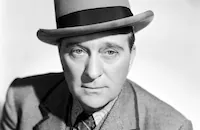
Lynne Overman

Raymond Walburn
Eddie Foy Jr.
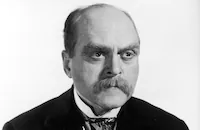
Grant Mitchell
Clara Blandick
Tom Herbert
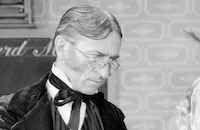
Olin Howlin
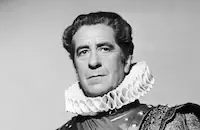
Robert Warwick
Stanley Andrews
Norma Varden

Hope Landin

James Burke
George H. Reed
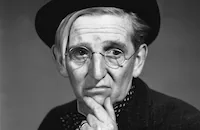
Jimmy Conlin
George Anderson
Harry C. Bradley
William Halligan
Wilbur Mack
Henry Roquemore

Brandon Hurst
Sam Flint
Dell Henderson
Harry Barris
Isabel Randolph
Joe Cunningham

Fortunio Bonanova

Brandon Hurst
Josephine Whittell

Willie Best
Paul Mcvey
Charles La Torre
Charles R. Moore
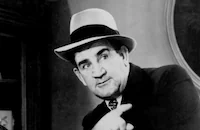
Tom Kennedy
Charles Cane
Edward Emerson
Cyril Ring
Dudley Dickerson
Harry Tyler

Carl Switzer
John "skins" Miller
Donald Kerr
Fred Santley
Warren Jackson
Jimmy Ray
Hal Rand
Charles Mayon
Allen Ray
Jerry James
James Clemons
Ethel Clayton
Crew
Lewis Allen
Max Asher
Irmgard Batchler
Claude Binyon
James Bland
Johnny Burke
Henry Thacker Burleigh
Frank Campbell
Harry Caplan
William Collins
John Cope
Frances Dawson
Barney Dean
B. G. Desylva
George Dobbs
Robert Emmett Dolan
Hans Dreier
Raoul Pène Dubois
Raoul Pène Dubois
Grace Dubray
Frank Dugas
Farciot Edouart
Daniel Decatur Emmett
Seymour Felix
William Flannery
Jack Frances
Arthur Franklin
Ed Frazier
Alvin Ganzer
Robert Goodstein
Loyal Griggs
Earl Hayman
W. M. Hays
Gordon Jennings
Paul Jones
Natalie Kalmus
Henry Kessler
N. Lacey
Sam Ledner
Joseph J. Lilley
Al Mann
Ed Manriquez
Maudlee Mcdougall
William C. Mellor
Ray Moyer
H. Murray
Morgan Padelford
Arthur Phillips
William Rankin
Billy Reeves
Leonora Sabine
Harold Schwartz
William Shea
Leo Sherin
Fred Starnes
Karl Tunberg
James Van Heusen
Darrell Ware
Paul Way
Wally Westmore
William Cool White

Film Details
Technical Specs

Quotes
Trivia
Notes
Southerner Daniel Decatur Emmett, who was born in Ohio in 1815, was best known as the composer of the song "Dixie." Modern historians indicate that Emmett was an abolitionist, although the song became an unofficial anthem for the Confederacy during the Civil War. As depicted in the film, Emmett was one of the originators of blackface entertainment in the theatre. In New York in 1843, Emmett, Billy Whitlock, Frank Pelham and Frank Brower performed in blackface, billing themselves as the Virginia Minstrels. This is the first known performance in which blackface performers were called minstrels, although blackface performances were common in circuses. Although dancer Louis Da Pron is listed in the CBCS as a "Minstrel dancer," a memo contained in the Paramount Collection at the AMPAS Library states that Da Pron "is no longer in the picture and his name should be removed from the cast sheet thereof." An early Hollywood Reporter news items reported that Paramount considered adding Fred Astaire to the cast. This marks Billy De Wolfe's feature film debut.












